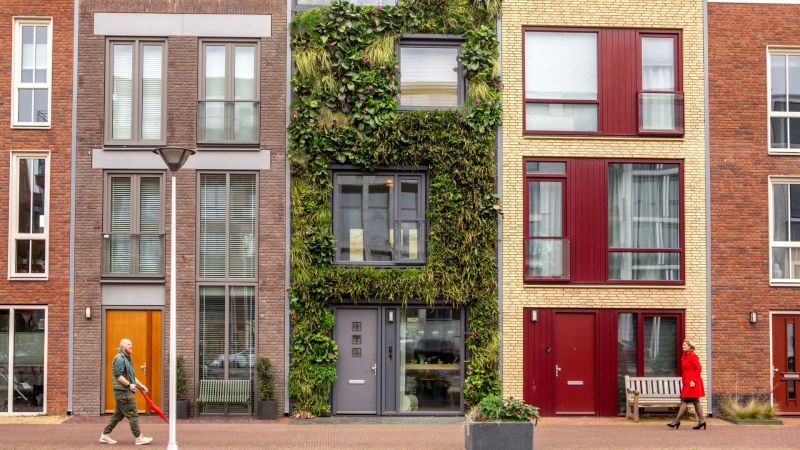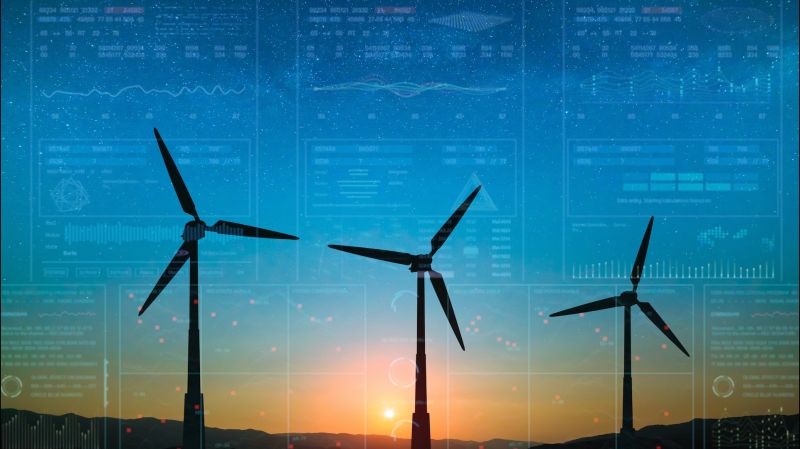Gaming Good Energy Habits
Avoid the burning tree! An app sets out to turn employees into sustainability warriors

- Researchers developed an app that provides employees with real-time feedback on how much energy they are consuming at work.
- The app responds to the user’s energy usage through visuals and gaming features, and includes an educational component in the form of a daily energy conservation tip.
- On average, the researchers saw a decrease in energy use during the period when people used the app.
As homeowners or consumers, we see plenty of feedback cues that encourage us to reduce our energy footprint. A utility bill is a great motivating force. But once we go into the office, it’s more a case of out of sight, out of mind. It’s unfortunate, since organizations wanting to boost their environmental sustainability can hardly reach their goals without employee support.
The challenge is to help employees see the environmental impact of their office work. Researchers from Smith School of Business have combined the principles of gaming with an app to do just that.
“In terms of environmental issues in organizations, employees really don’t know when they’re doing better behaviours or worse behaviours,” says Jane Webster, a professor of management information systems at Smith School of Business. “At work, we generally don’t get any feedback on how well we’re doing, and we may not be motivated to change our behaviours because we’re not rewarded for them.”
Webster, along with Smith colleague Sandy Staples, Smith developer Tam Y. Hung, and Smith graduates Divinus Oppong-Tawiah (now Assistant Professor, The Schulich School of Business, York University) and Ann-Frances Cameron and Ana Ortiz de Guinea (now both professors at HEC Montréal), are aiming to provide employees with that insight.
“The first thing we wanted to do was provide feedback, so people actually knew how well they were doing,” says Webster. “And then we wanted to provide information in terms of how to improve that behaviour.”
Real-Time Feedback
The researchers developed an app that provides employees with real-time feedback on how much energy they’re consuming at work. The app communicated with a sophisticated wattmeter measuring energy use from employees’ computers and computer peripherals, such as monitors and printers, and compared their real-time energy usage to a previously established baseline period.
Instead of simply reporting energy use data to the employees, the app follows a gaming approach. Using a garden metaphor, it responds to the user’s energy usage through visuals and game features. For example, when an employee uses less energy than in the baseline period, the app displays a green garden, full of flowers and a flying bird. Interactive icons appear along the side that the user can play with. This is “the best case scenario,” says Webster, and is intended as positive feedback.
The worst case scenario? The garden dies, the trees are on fire, and they don’t have any icons to play with.
To help employees keep their garden green and avoid a desolate landscape, the app also includes an educational component in the form of a daily energy conservation tip. For the tips, the team focused on behaviours that were found to best contribute to energy conservation.
The worst case scenario? The garden dies, the trees are on fire, and they don’t have any icons to play with
“When we started the study we didn’t know how much energy you can save by turning off your monitor versus turning off your printer versus unplugging your phone from your computer,” says Webster. “There are lots of tips you can find online, but you don’t know which ones are the most impactful.”
To determine which behaviours would make the most significant contribution to energy conservation, the team conducted a small study and found that actions as simple as turning off an extra monitor could have a significant impact on an individual’s energy use. “The results were stark,” says Webster. “The best way to save energy is to turn off your external monitor when you're not using it, and it's easy.”
The researchers wanted to show people the behaviours with the greatest impact, based on the idea that many small changes in behaviour can add up to a large effect.
New Behaviour Sticks
They reported positive results. On average, the researchers saw a decrease in energy use during the period when people used the app. They then took the app away and continued to test each employee’s energy usage to see if the knowledge they acquired during the intervention period continued to be reflected in their behaviours. While the employees did not do as well as during the intervention, they did not completely return to their previous habits and displayed better energy conservation behaviours than during the baseline.
Webster says that the app is one way organizations can encourage more sustainable choices; in particular, gamification could be an important tool for engaging employees. For now, the research team is focusing on gathering more data.
Webster points out, though, that there are other options available to organizations to encourage energy conservation and sustainability, many of which are very cost effective. Related studies are underway to encourage energy conservation using goal setting and social networking with a simple energy monitoring device.
“There are a lot of psychological theories that we could use to encourage more effective environmental behaviours,” says Webster.
We just need to use them.
— Sparrow McGowan
For more background on this research, please see:
Bui, A., Veit, D., & Webster, J. (2015). Gamification – A novel phenomenon or a new wrapping for existing concepts? Thirty-Sixth International Conference on Information Systems, Fort Worth, Texas.
Oppong-Tawiah, D., Webster, J., Staples, S., Cameron, A.F., and Ortiz de Guinea, A. (2014). Encouraging sustainable energy use in the office with persuasive mobile information systems, Thirty-Fifth International Conference on Information Systems, Auckland, NZ.





